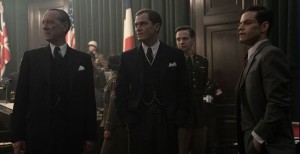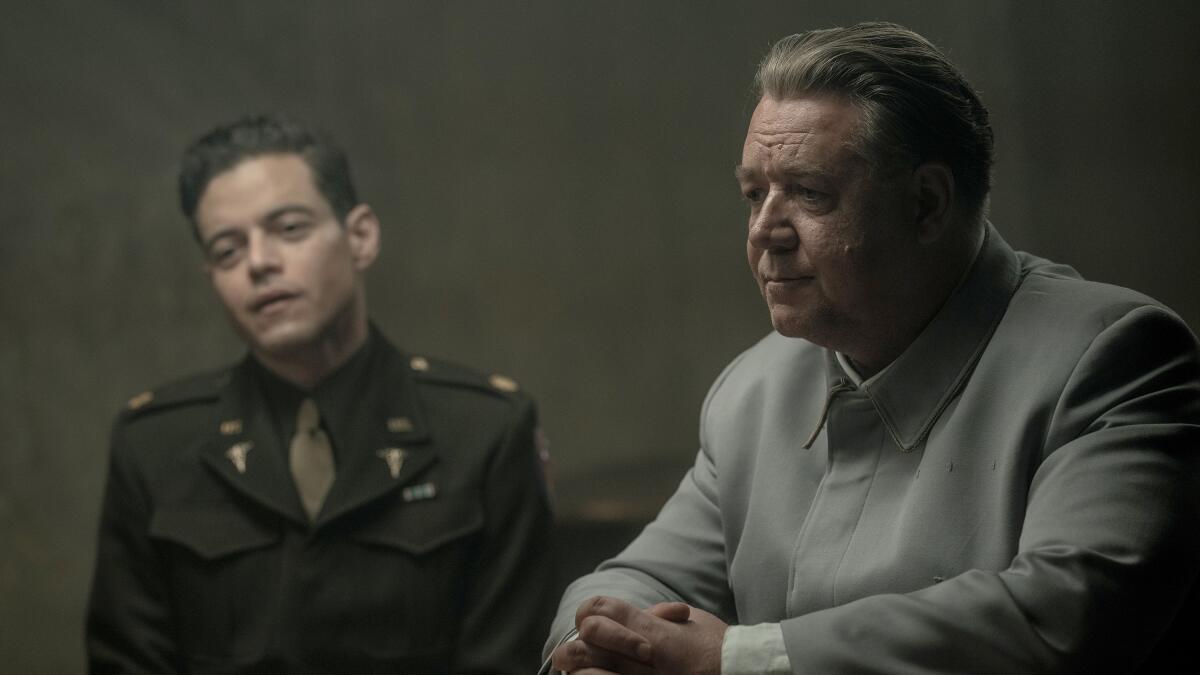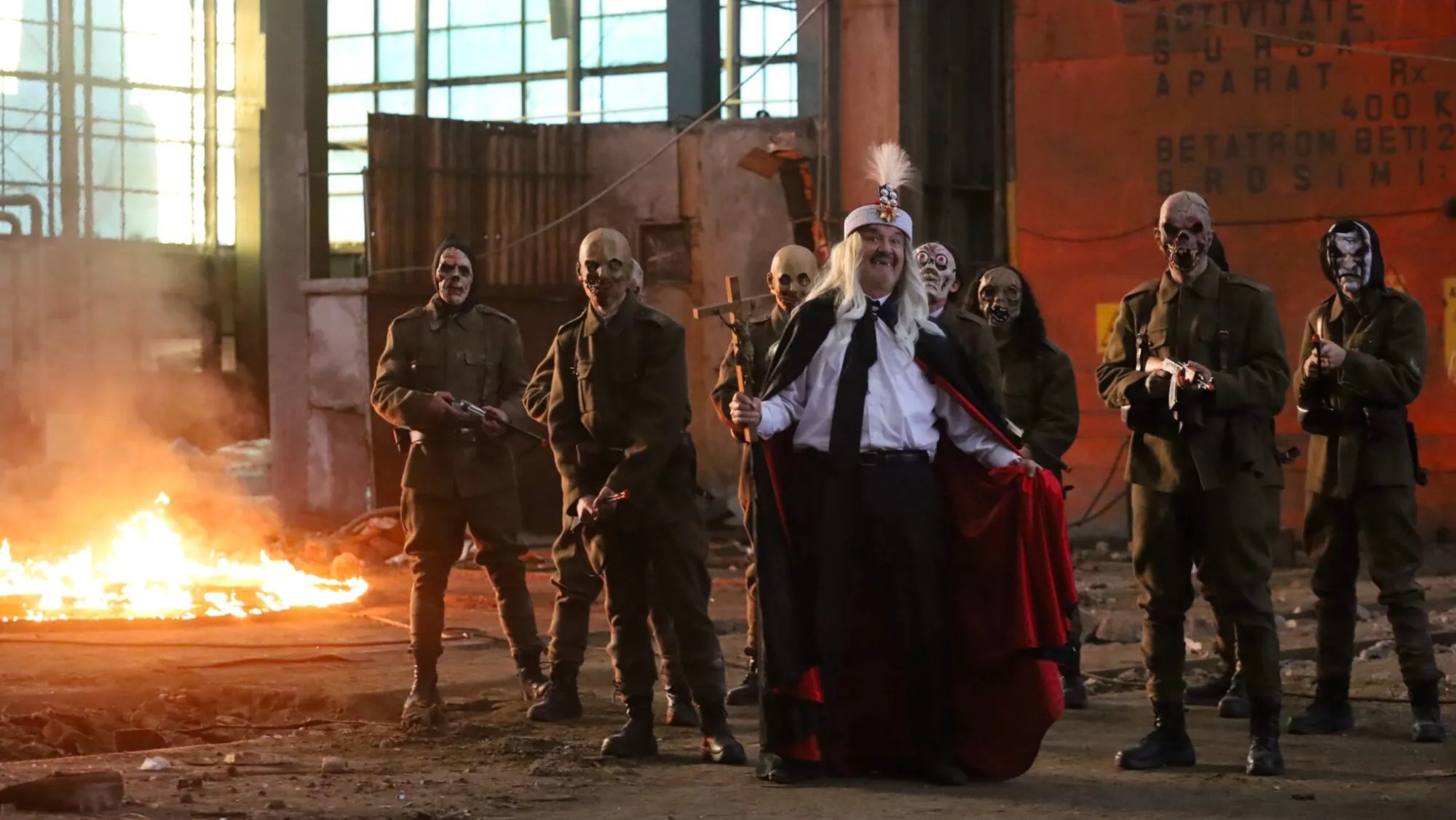![]()
Theatrically-released historical dramas are becoming fewer and fewer with each passing year. In large part due to streaming, which prioritizes the mini-series treatment, big-budget dramas for adults have greatly diminished throughout the decade. The latest film from Zodiac screenwriter James Vanderbilt is a rare exception. This historical thriller, set during the Nuremberg Trials, features an all-star cast of Oscar-winners, character actors and up-and-comers that feels like it could have been made 50 years ago. The result is a rather captivating film with some incredibly timely messaging about the dangers of fascism and history repeating itself.

Courtesy Sony Pictures Classics
In the immediate aftermath of World War II, the remaining members of the Nazi high command, including Hitler’s right-hand-man Hermann Göring (Russell Crowe), have all been arrested or have surrendered and have been transferred to Luxembourg. Justice Robert Jackson (Michael Shannon) is spearheading an effort to build an International Military Tribunal to put the remaining Nazis on trial and admit to their crimes. Psychiatrist Douglas Kelley (Rami Malek) is a smooth-talking womanizer who is brought in to evaluate the Nazis and ensure they are fit to stand trial, as well as break doctor-patient confidentiality and use his insight on Göring to help solidify the case against him. Kelley also sees this as an opportunity to write a book about Göring and understanding the evil of humanity. The psychiatrist quickly forms something of a bond with Göring, allowing a sense of trust to build between the two. Kelley even goes so far as to trade letters with Göring’s wife and child. As the trial looms, Kelley finds himself with the realization that he has been manipulated by Göring and must resist his advances towards making an ally and focus on the pursuit of justice.
Written and directed by James Vanderbilt, Nuremberg is an engrossing and thoroughly riveting historical drama. Vanderbilt focuses primarily on the relationship between Kelley and Göring as Kelley attempts to get inside Göring’s head. The exchanges between the two men are the film’s clearest highlights as both Malek and Crowe deliver some of their finest work to date. Crowe nails the charming, narcissistic nature of Göring, while imbuing the role with the proper amount of humanity. The push-pull dynamic between them is immediately compelling as Vanderbilt rests most of the drama on the shoulders of his two leads. Vanderbilt’s crackling script gives a sense of energy to the picture, avoiding feeling like the dry, stuffy television movie this could’ve been.

Courtesy Sony Pictures Classics
An eclectic cast rounds out the film with Crowe, in particular, delivering exceptional work. Michael Shannon is quite strong as Justice Roberts who is dead set on seeing these men get the justice they deserve, making an example of them for years to come. Shannon’s work in the cross-examination courtroom scenes are particularly electric, maintaining a sense of composure while keeping his anger at bay. Leo Woodall gives a scene-stealing turn as a German interpreter with a tragic personal backstory. Richard E. Grant is largely relegated to the background, but gets a rapturous moment towards the film’s climax that made my audience applaud. Other actors such as John Slattery, Colin Hanks and Lydia Peckham aren’t fully utilized, but service their roles well.
The subject matter is rightfully harrowing and Vanderbilt gives the material a proper sense of weight. The style in which the film showcases these events is refreshingly matter-of-fact, unafraid to showcase the insidious nature of the Nazi regime, while reinforcing the truth the Nazis were indeed humans. It was human beings that carried out these acts and thus Vanderbilt doesn’t pull his punches in showcasing this. The writer/director slows down the pacing for a deeply harrowing sequence where the first footage of the concentration camps is shown in court. It’s a masterfully directed scene that allows the audience to witness the horror of the Nazi Final Solution along with the characters.
Vanderbilt’s screenplay has moments of brilliance, largely the courtroom sequences and exchanges between Kelley and Göring, but has its fair share of flaws. Dialogue tends to be on-the-nose and some narrative beats are clumsily conceived. Side characters come and go with little depth or meaningful arcs and the final warning of history repeating itself isn’t given the full treatment it needs to in order to make its final scene as impactful as intended. Still, Nuremberg moves at a brisk enough pace that these flaws don’t bog the film down.

Courtesy Sony Pictures Classics
Nuremberg is an engrossing and superbly acted historical drama. Writer/director James Vanderbilt takes a critical moment in history and, through sheer force of the subject matter and some terrific performances, turns it into an electric film that showcases the importance of justice. Russell Crowe gives his best performance in well over a decade in a film that comes with a timely message despite taking place 80 years ago.
Nuremberg is now playing in theaters.








Hasn’t the definitive Nuremberg movie already been made?